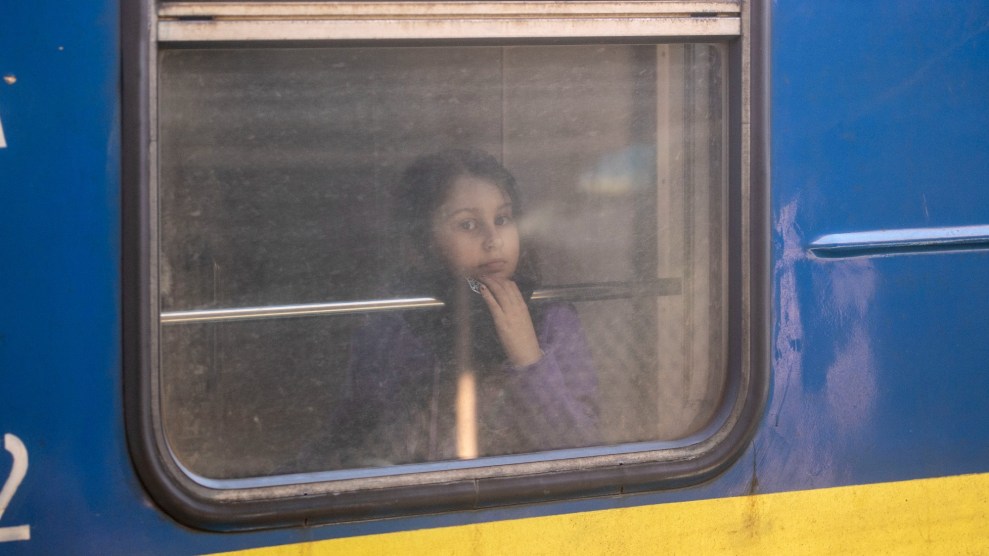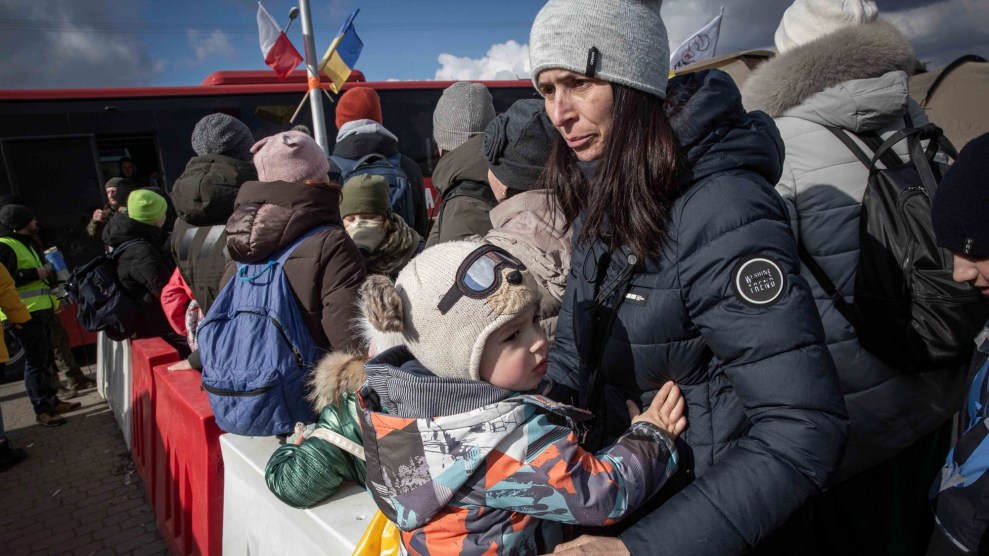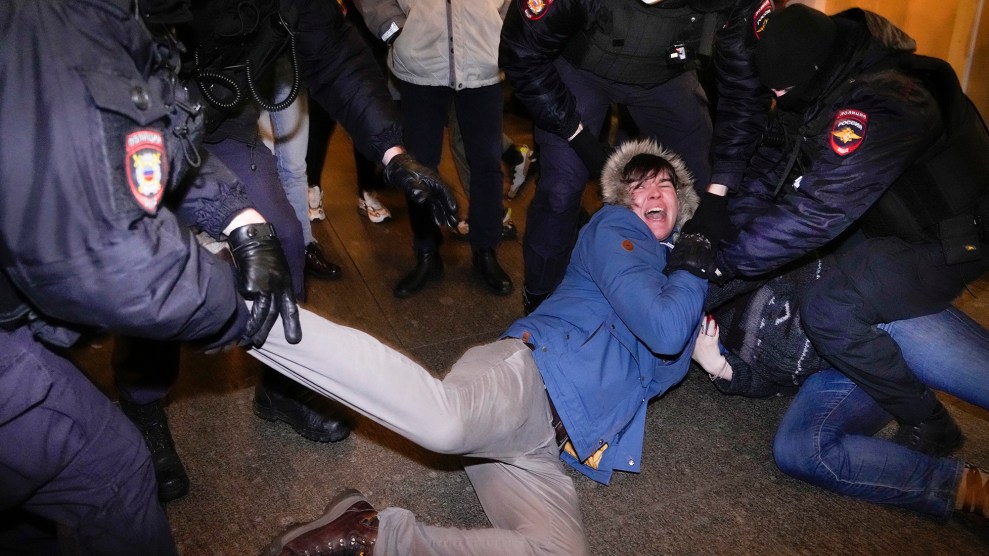
A girl on a train from Kyiv that arrived in Przemysl, Poland in March.Picture Alliance/Getty
More than 10 million people in Ukraine have been forced to flee their homes, the United Nation’s High Commissioner on Refugees said on Sunday. This staggering number, and other new estimates from the UN, quantify the scale of the exodus of Ukrainians from what was a thriving and tranquil country up until the Russian army invaded, unprovoked, less than a month ago.
About 3.3 million of this 10 million have left the country and become refugees in neighboring nations. More than 1.5 million of those refugees are children, the UN’s children’s fund, UNICEF, said earlier this week—amounting to almost one child per second leaving Ukraine. “Every day in Ukraine from the start of the war, more than 75,000 children have become refugees,” a UNICEF spokesman said at a press briefing. “Every single minute, 55 children have fled their country. That is, a Ukrainian child has become a refugee almost every single second since the start of the war.”
Ukrainian refugees have scattered through nearby countries in Eastern Europe. The majority, about 2 million, have gone to Poland, while half a million have fled to Romania. Smaller numbers have fled to Hungary, Moldova, and Slovakia. About 184,000 have gone to Russia.
Millions of other Ukrainians have been displaced within their own country, the chief of UNHCR Filippo Grandi said on Sunday on Twitter.
Among the responsibilities of those who wage war, everywhere in the world, is the suffering inflicted on civilians who are forced to flee their homes.
The war in Ukraine is so devastating that 10 million have fled — either displaced inside the country, or as refugees abroad.
— Filippo Grandi (@FilippoGrandi) March 20, 2022
The European Union has already enacted friendly legislation to ease the transition of Ukrainian refugees: One week into the Russian invasion, European Commission President Ursula von der Leyen announced that Ukrainians would be given rights to live and work in the EU for three years. (The US has also offered some Ukrainians temporary protected status.)
The EU’s response to Ukrainian refugees has earned accolades around the globe, but it has also surfaced reminders of the less friendly treatment that Syrian refugees received in some European countries when they attempted to flee war within their own borders. This included pledges of hundreds of millions in EU funds to crack down on refugees arriving in Greece, and instances of officials in Hungary using tear gas and water canons on refugees.

















